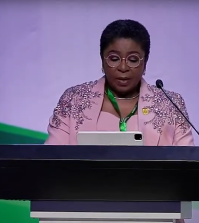Irish government hosts blockchain hackathon to spark innovation

The Irish government last weekend hosted a blockchain hackathon, as part of its work to bring innovative technology into the public sector.
The three-day event, called ‘Blockathon Ireland’, was hosted by The Department of Public Expenditure and Reform in association with The Department of Finance. Its aim was to identify and explore solutions to public sector challenges using blockchain technology.
Nine teams took part in the hackathon, competing for the top prize of €5000 by identifying innovative solutions to improve government services. Irish Tech News reported that the teams were given pre-set challenges to solve, such as verifying CSO data or tracking State Aid for Enterprise Ireland.
The resulting ideas were then judged under four criteria: innovation, relevance, solution, and proof of concept. Experts from government, business and academia attended the event to mentor the teams and judge the final outcomes.
A use case for blockchain
The Minister for Finance and Public Expenditure and Reform, Paschal Donohoe TD, told Irish Tech News: “Consulting and engaging experts on innovation from across the public sector, academia and the private sector to share ideas is a valuable action… and this hackathon offers an opportunity to do so.”
First prize went to Clodagh McCarthy Luddy and Rosa Devine, who proposed using blockchain technology to time-stamp all files in the Central Statistics Office (CSO) database, thereby reducing admin errors and improving trust between the public and the CSO.
Second prize was awarded to a project proposing a de-centralised toll collection process for vehicles, and third prize to a team suggesting a medical device tracking system.
Digital discoveries
Speaking before the event, Donohoe told Irish Tech News: “Blockchain technologies have proposed new economic, business, social and technological models that have the potential to significantly impact business and society.
“As part of Our Public Service 2020, our government has pledged to drive innovation in policy design and service delivery, as well as promote a culture of innovation across our public service. We believe this can partially be achieved through the use of novel and alternative mechanisms, new platforms and unusual channels.”























